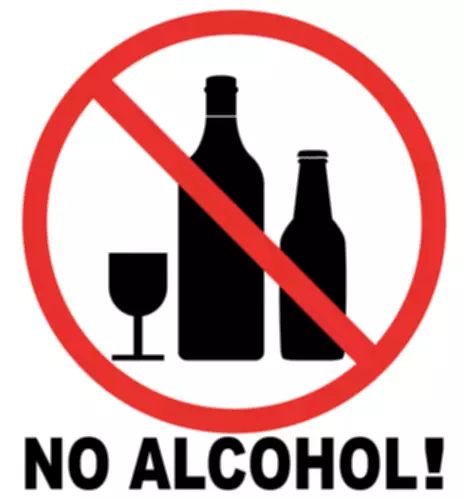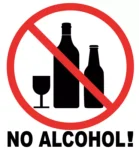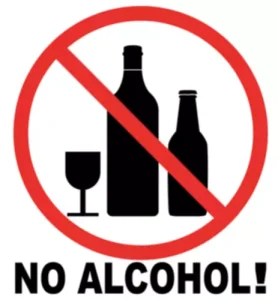
That means that after enough exposure, it shrinks both individual neurons and the entire brain. When particular regions of the brain, such as the hippocampus, are chronically exposed to alcohol, memory, mood, behavior, and cognition suffer. Finally, alcohol disrupts communication between the brain’s neurons, which causes more global side effects like loss of balance, memory, speech, and judgment. Alcohol increases the sedative effects of the neurotransmitter GABA (gamma-aminobutyric acid), which blocks certain signals from the central nervous system. It also dulls the excitatory neurotransmitter glutamate, alcohol brain fog which plays a key role in learning, memory, sleep, and mood. At United Recovery Project, our holistic approach to addiction treatment centers around addressing and healing theunderlying issues at the root of addiction.
Sleep and Stress Management
Fortunately, cognitive impairments created by alcohol are reversible with abstinence. Of course, even if your goal isn’t abstinence, reducing alcohol consumption to light or moderate levels is going to help. Either way, the good news is that your brain can restore its natural chemical levels and even return to normal functioning. Most people see improvements within just a few months and can expect dopamine levels to be back to normal after a year or so (depending on how heavily you drank). With continued sobriety, you may begin to notice improvements in your cognitive function over time.
Mental Health

Brain fog is that fuzzy, forgetful feeling that can happen for various reasons. Knowing the cause of your symptoms can help determine if you need specific treatment or lifestyle and medication adjustments to help with brain fog. However, there are many ways to manage brain fog, including getting adequate sleep, nutrition, and social time; managing stress; and addressing any underlying contributing factors like ADHD or depression. Are you feeling foggy, run-down, or having trouble focusing the day after drinking? This is a common side effect due to alcohol’s impact on the mind and body. There are several keys to unlocking a swift recovery from brain fog.
- Alcohol-related brain impairment (ARBI) is long-term brain damage that kills brain cells and impairs memory.
- Alcohol-induced brain fog, a common yet overlooked symptom of alcohol withdrawal, can last up to an impressive 26 weeks after you make the decision to quit drinking.
- In a study published in 2018, people who regularly had 10 or more drinks per week had one to two years shorter life expectancies than those who had fewer than five drinks.
- This CME/CE credit opportunity is jointly provided by the Postgraduate Institute for Medicine and NIAAA.
Understanding Alcohol Brain Fog
By managing stress through exercise, meditation, deep breathing, and journaling, you can clear the fog and enhance your mental clarity. Any brain that’s been the victim of extended substance abuse certainly couldn’t be harmed by a memory or concentration exercise. In addition, ongoing research is abundant in the area of neuroplasticity—the amazing ability of the brain to rewire following injury or disease—and its relationship to addiction recovery. It can occur during or after someone’s alcohol addiction, even in otherwise healthy people.
A Timeline for Cognitive Recovery after Abstinence

Understanding when alcohol withdrawal brain fog goes away gives you hope that helps you to maintain momentum during your recovery. During this recovery timeline, it’s important to be patient with yourself and prioritize self-care. Give your brain time to heal and focus on activities that promote overall well-being, such as getting enough sleep, eating a balanced diet, and engaging in regular exercise. Taking care of your mental health through therapy and support groups can also aid in the recovery process.

3 Months Without Alcohol Lets Brains Repair Damage From Heavy Drinking, Study Finds

Medical professionals can help you feel as comfortable as possible and manage side effects to avoid relapse during this difficult process. Warren is a Licensed Master Social Worker, who specializes in substance abuse and mental health treatment. Clinically, Warren has developed what is Oxford House a therapeutic skillset that utilizes a strengths-based perspective, Twelve Step philosophies, Cognitive Behavioral Therapy and Motivational Interviewing. The best way to combat this issue is to reduce or eliminate alcohol consumption. This can be done by setting limits on how much you drink, avoiding drinking in situations where you may be tempted to overindulge, and seeking advice from others. We often don’t realize it, but water actually helps our brain cells communicate with each other.
Factors that can help your brain recover from brain fog faster include the length of time alcohol was consumed, the amount of alcohol consumed, and the individual’s overall health. Brain fog from alcohol — also known as hangover brain fog — usually lessens within 8 to 24 hours after drinking. However, the time frame can be longer for people who are regularly consuming heavy amounts of alcohol. If your brain fog is disrupting your everyday routine or making it hard to perform daily tasks, you should make an appointment with a healthcare professional. But, if all you’re experiencing is a little bit of fogginess, it might be worth it to test out a few lifestyle changes. In addition, exercise can also help to improve your sleep quality, which can further help reduce the symptoms of alcohol fog or brain fog in general.
